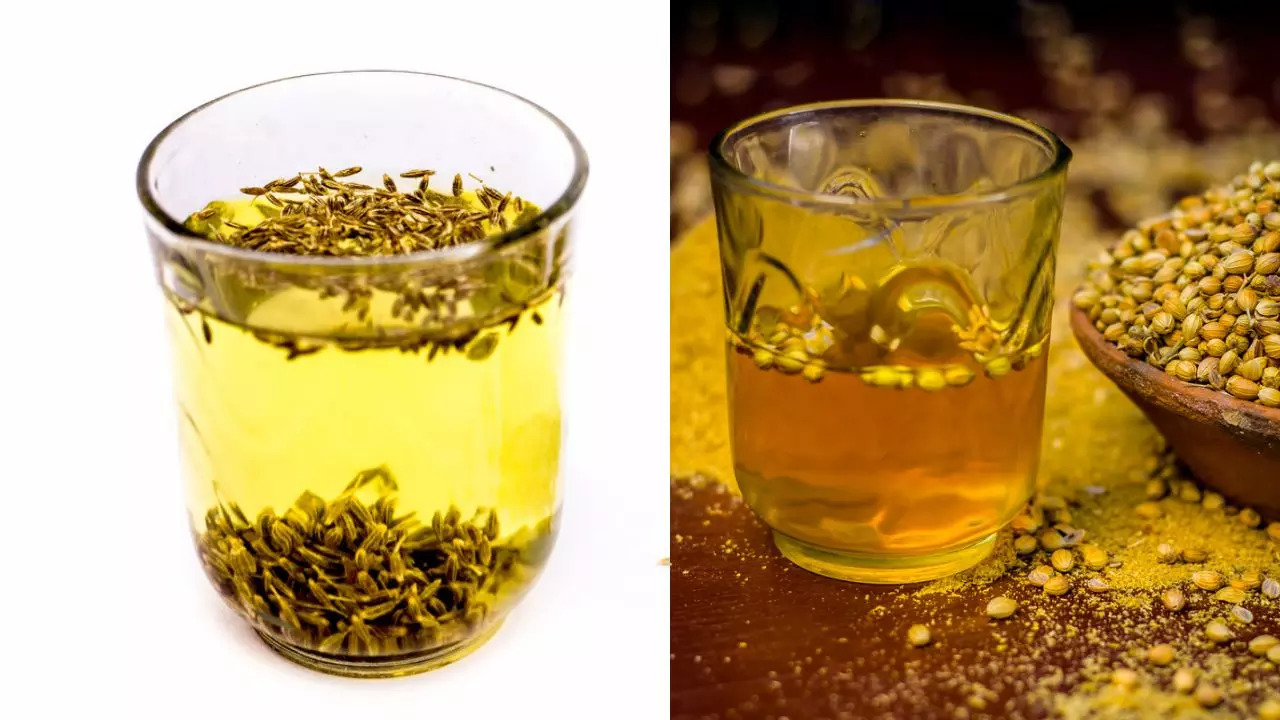Cumin water or coriander seed water: Which is better for you?

Cumin water or coriander seed water: Which is better for you? (Image: iStock)
Healthcare facilities
He added, “Both cumin and coriander are packed with bioactive compounds that contribute to their wide range of health benefits, from aiding digestion to providing antioxidant support.” While cumin’s primary bioactive compounds include cuminaldehyde, which has antimicrobial and anti-inflammatory properties; thymol, which is known for its digestive and antiseptic effects; and flavonoids, which are powerful antioxidants that help fight oxidative stress, the key components of coriander seeds include linalool, known for its anti-inflammatory and antioxidant properties; coriandrin, which has been studied for its potential lipid-lowering effects; flavonoids such as quercetin, which provide antioxidant benefits; coumarin, which may support blood circulation; and dietary fiber, which aids in digestion and gut health.
possible side effects
Dr. Riya explains, “Despite their benefits, both cumin and coriander seed water may have side effects, especially when consumed in excess. For instance, cumin may increase gastric acid secretion, causing heartburn or acid reflux in sensitive individuals. On the other hand, excessive consumption of coriander seeds may interfere with liver function due to its high content of certain bioactive compounds.”
Things to keep in mind
Individuals with specific health conditions should exercise caution. For example, people with diabetes should be aware that both cumin and coriander seeds have been proven to lower blood sugar levels, which can increase hypoglycemia if not properly monitored. Additionally, some evidence suggests that these seeds may affect hormonal balance, potentially affecting the menstrual cycle in women. Given these potential risks, it’s important to consult a healthcare provider before incorporating these practices into your routine, especially if you have pre-existing health problems or are taking medications.
- Soaking and boilingSoaking cumin or coriander seeds overnight and then boiling them in water can release their beneficial compounds. This method makes the nutrients more bioavailable and easier to digest. Drinking the water can aid digestion and detoxification.
- ToastingLightly roasting cumin seeds before grinding them enhances their flavor and releases essential oils, which increase their antioxidant properties. Coriander seeds can also be roasted to improve their flavor and effectiveness.
- Ground FormGrinding cumin and coriander seeds just before use preserves their volatile oils and active compounds. In this form they can be added to foods or beverages, providing a convenient way to incorporate their benefits into your diet.
- ControlIt is advisable to consume these seeds in limited quantities to avoid potential side effects. For cumin, 1-2 teaspoons per day is generally considered safe, while the same amount is appropriate for coriander.
- Combination: Using cumin and coriander seeds together in cooking can enhance their digestive and antioxidant benefits. However, it is essential to balance their intake to prevent any adverse effects.
conclusion
In short, while cumin and coriander seed water may offer various health benefits, they are not devoid of potential risks. The decision to use one instead of the other should be guided by individual health needs, potential side effects, and professional medical advice. Blindly following health trends without considering personal health factors may lead to adverse consequences. Therefore, it is essential to seek guidance from health professionals to ensure safe and effective use of these natural remedies.


